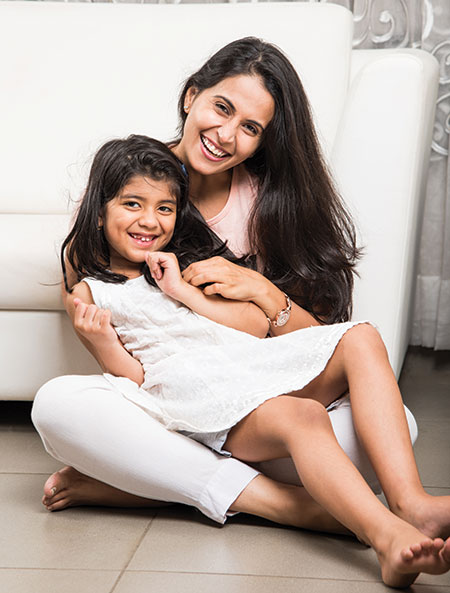Failure is a learning experience and pre-condition of success. When children experience disappointment and failure, if they are given counseling, support, and advice, they become better and stronger people – Bandana Brahmin

Learning to cope with challenges, disappointments and often failure, is a rite of passage for all children. However, during the teenage years when adolescents experience intense physical, psychological and emotional transformation as they are confronted with the burden of parental expectations, peer pressure, and demands of an exam-focused education system, many of them experience deep and debilitating fear of failure.
Fear of failure causes children to experience anxiety before they write a test, perform for an audience, compete in a sport or even participate in new social settings. It prompts them to perform below their potential, inhibits them from experimentation, making new friends, and taking risks. Therefore, it’s important for caring parents to educate and counsel children that failure is an essential part-and-parcel of life and often the stepping stone to success. When children experience disappointment and failure, if they are given counseling, support, and advice, they become better and stronger people.
Comments Haimanti Basu Roy, a Kolkata-based teacher and mother of ten-year-old Soham, whose husband (Souvik) is a former nationally top-ranked table-tennis player: “Although we never expected Soham to be a topper in academics or sports, when he was eight, he started suffering chronic anxiety and fear of not doing well in exams and sports competitions. Since his father is his role model, Soham naturally wanted to be a winner in academics and sports. But fear of failure began negatively impacting his academic scores and performance in sports events. Luckily we intervened early on and counselled him out of his anxiety by citing examples of people who made their mark in the world despite being average students and sportspersons. Eventually we were able to ease him out his anxiety and his academic scores started improving dramatically. He also plays inter-district table tennis tournaments now.”
Popular culture and media, which promptly confers mass adulation and celebrity status on the successful, plant the seeds of fear of failure in children. Societal condemnation of under-achievers also makes a deep impact on children who often entertain fears of being ostracised and stigmatised by peers. Moreover, ambitious parents who make their love and approval conditional upon good grades and sporting success exacerbate the harm that failure can inflict upon children.
“We can’t expect children to manage disappointment and failure when most adults struggle to cope with disappointment and setbacks. Therefore it’s important to provide a secure stress-free home environment to help children cope with failure. Moreover, parents themselves need to learn to take failure in their stride as children look up to parents as role models,” says Dr. Anupama Maruvada, child behaviour therapist, founder and clinic director of CBT2, a mental healthcare facility in Bangalore.
Unfortunately too many parents impose their unrealised dreams upon their children. This generates deep anxiety within children who don’t want to disappoint their parents. Preeti Ray, acting headmistress of a government school in Khoribari (Siliguri) and mother of two girls, recounts her experience of helping her elder daughter Megha cope with failure.
“When Megha started displaying signs of high intelligence as a preschooler, I started raising my expectations of her. All through her primary school, she never failed me. However, when she graduated to middle school, she experienced difficulty with some subjects. When her grades suffered and confidence levels began plunging, I realised this was because I had set my expectations too high. Therefore we discussed her problems and I informed her that what mattered was the effort, not result. Since then, she has bounced back and has been faring quite well in academics and co-curricular activities. My advice to parents is to set realistic expectations and communicate clearly to children that it’s alright if they don’t top the class,” says Ray.
Do’s and Don’ts for parents
Dr. Anupama Maruvada, child behavior therapist, founder and clinic director of CBT2, a mental healthcare facility in Bangalore, offers parents useful advice on helping children overcome fear of failure.
 Do’s
Do’s
• Make time to communicate and hear out your children’s problems.
• Educate your children that it’s alright to fail sometimes and that failure is often the enabler of success.
• Help them develop a positive self-image by focusing on their strengths rather than weaknesses.
• Encourage children to see the big picture instead of hinging their happiness and expectations on single discrete experiences.
Don’ts
• Avoid comparison between siblings and peers because every child has unique abilities, strengths and weaknesses.
• Avoid silence, sulking and indifference when your child is speaking with you no matter how trivial the subject may seem.
• Don’t make judgmental or sarcastic remarks, speak in a commanding tone or interrupt when children are sharing stressful experiences with you.
• Avoid overt reaction to your own failures and disappointments because children look up to you and follow your example.























